I want to identify my goals and the meaning of my work, and achieve even more than anticipated.
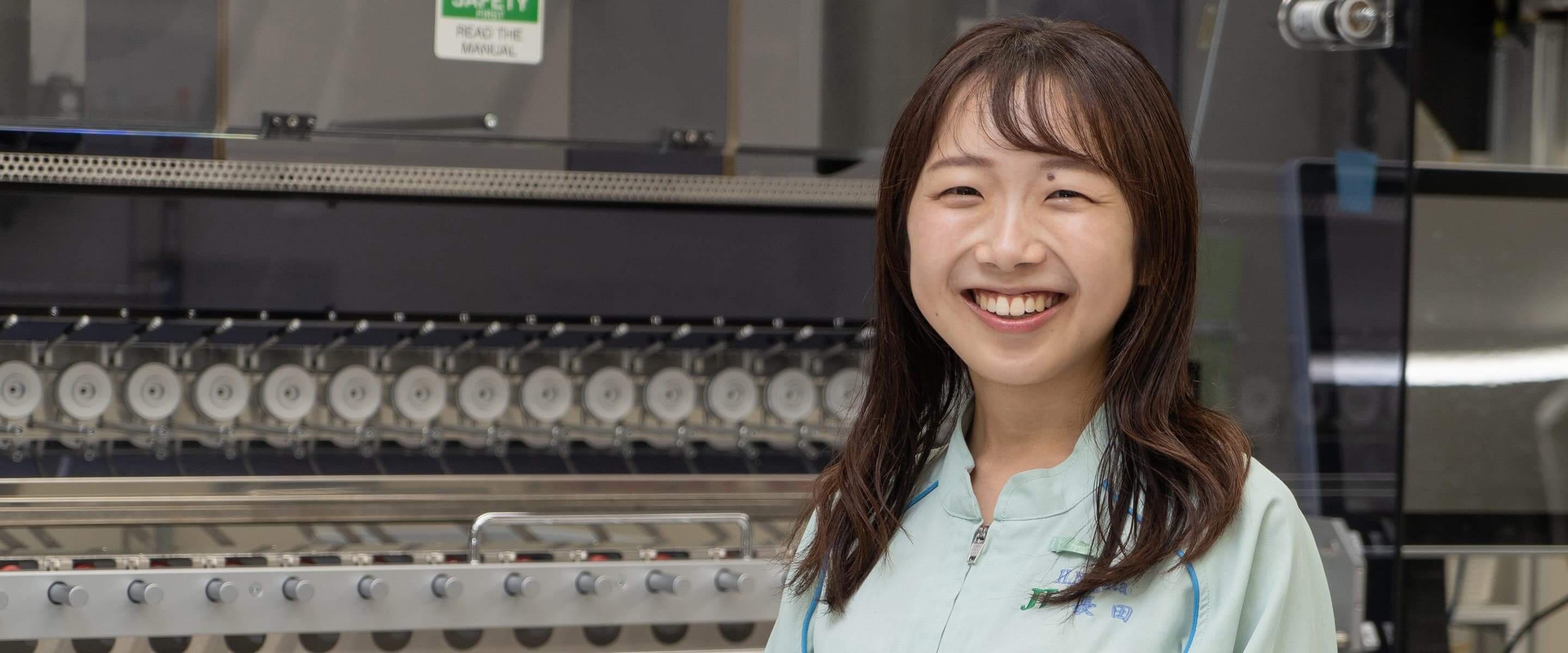
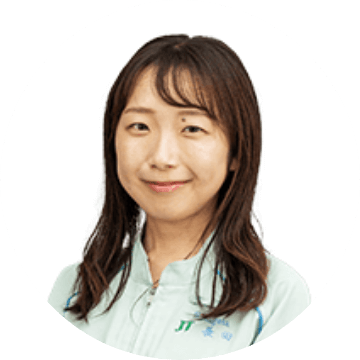
Science Research
Haruka Nagata
Analysis of components in tobacco product smoke, development and improvement of analysis methods
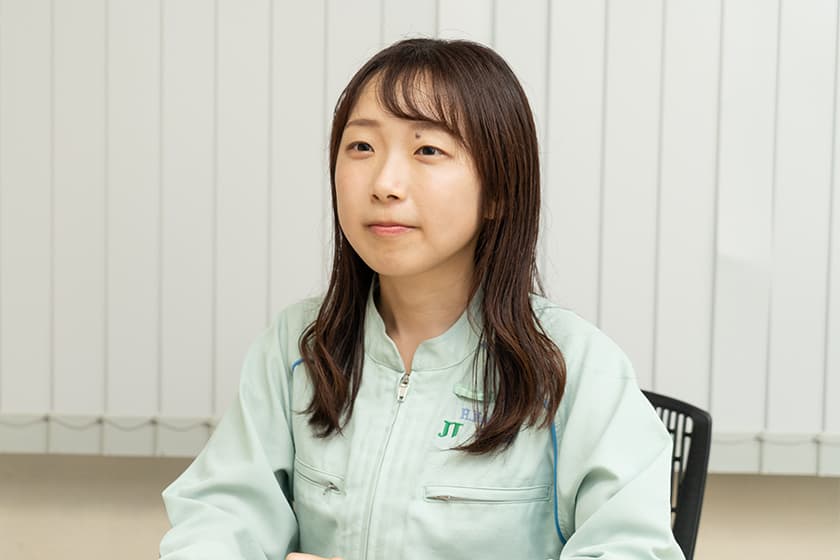
Post-employment training that made me truly feel the differences between corporate and university research.
After entering the JT Group in 2019, I was assigned to a department conducting product evaluations, and am now in my third year there. I am responsible for analyzing components in smoke from tobacco products, and researching new analysis methods.
After completing company-wide training, I received training specific to the department of my assignment, where I worked for six months on a self-selected project in which I specified problems, proposed tasks, conducted verification tests, and gave a presentation in November. At this time, employees who had entered together with me but were assigned to other departments had already completed their training and were involved in actual work, so I felt slightly impatient with my situation, but I now think that it was a valuable opportunity given to me.
Corporate research is different from university research in that it requires consideration for how it will connect to business. A superior members who had coordinated my training asked me about my research, “What are its benefits to the company and to consumers?” This made me acutely aware that I was not a student anymore. This was also a time in which I learned how to proceed with research on topics I had selected myself while asking for assistance from people around me.
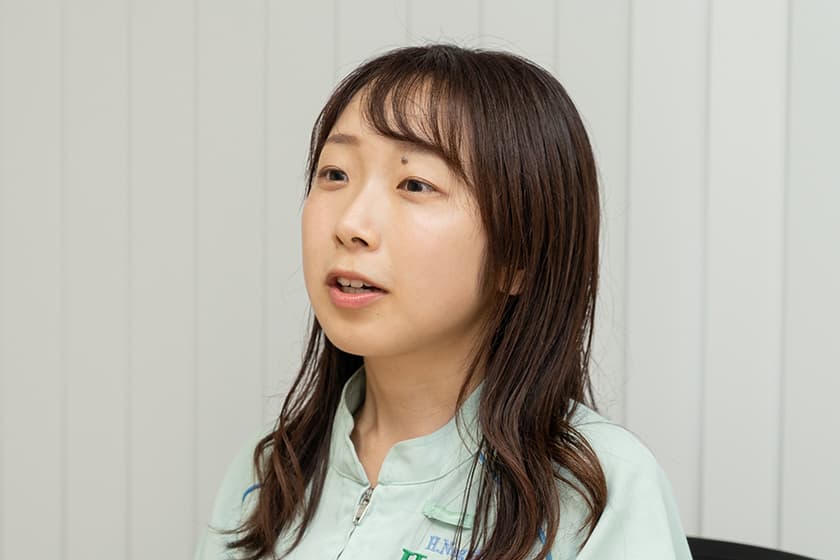
Analysis and evaluation work has great value, so I want to do work that exceeds expectations.
I specialized in biology, and studied how living creatures are affected by the things they eat in university and graduate school. While I was a student I carried out the entire procedure of research myself, from investigating background conditions and proposing a hypothesis, to conducting experiments and verification and then returning to re-examine the hypothesis. Therefore, my image of analysis and evaluation was that it was just one process whose purpose was to yield results for requests from other departments. When I was first assigned to the department conducting this type of work, I was a bit disappointed since I thought I would only be doing analysis and producing data.
However, since corporate research and development work requires analysis and evaluation of many verification items for a wide range of products, it is not possible for the entire flow of research to be completed by a single person as it is in academic institutions. In that sense, I realized during actual work that the development division and our division responsible for analysis and evaluation were carrying out research and development while dividing up work content and cooperating with each other. As our range of products is now becoming more diverse, data that other departments wish to find out about is becoming more varied and complex, so I truly have the feeling that we are being depended on even more.
We also have an ongoing sense of urgency since doing work that has a perfect score of 100 points is constantly required as a natural condition for analysis and evaluation. However, in order to consistently maintain a level of 100, we must always set our target even higher at 120 points. Analysis work may at first appear to be simple and straightforward, but in actuality, I know that it is the result of continual management and creative efforts carried out on a constant basis, and I believe it is important to have the spirit of doing work that exceeds expectations.
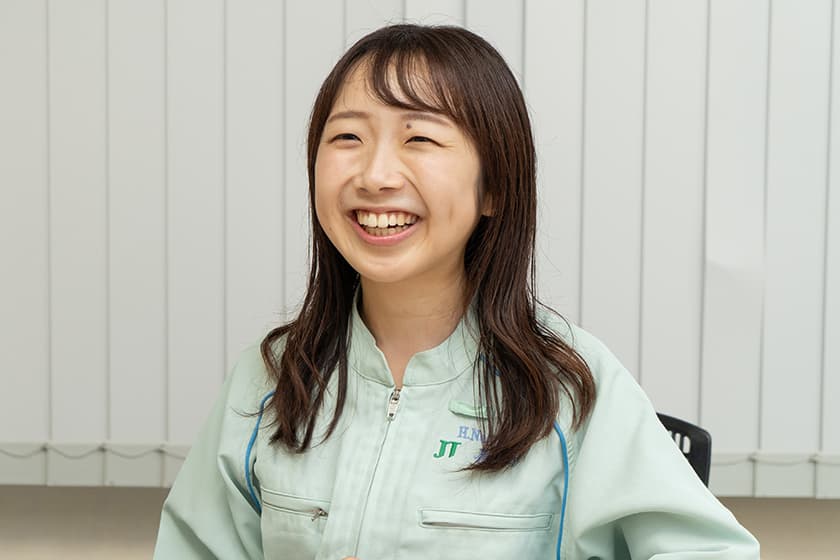
Rather than “What should be done?” the more important question is, “Who should it be done for?”
The work of the R&D Group is carried out with work divided among each department and proceeding toward a single goal. Instead of simply fulfilling requests related to areas I am responsible for, I want to take a comprehensive view of my work and think while repeatedly asking the question “Why?” in order to enhance the meaning of my results. I also want to strengthen and enrich my own analysis skills so that I can quickly perform any type of analysis on the rapidly-evolving range of tobacco products.
At our company, a key phrase for communication is “Caring for your moments” I am always careful to do my work while placing more importance on the question of “Who should it be done for?” rather than “What should be done?” Although the people I present my results to differ depending on the work, I want to clearly understand and recognize what those people want at any time, and to always do work that is the best for both of us.